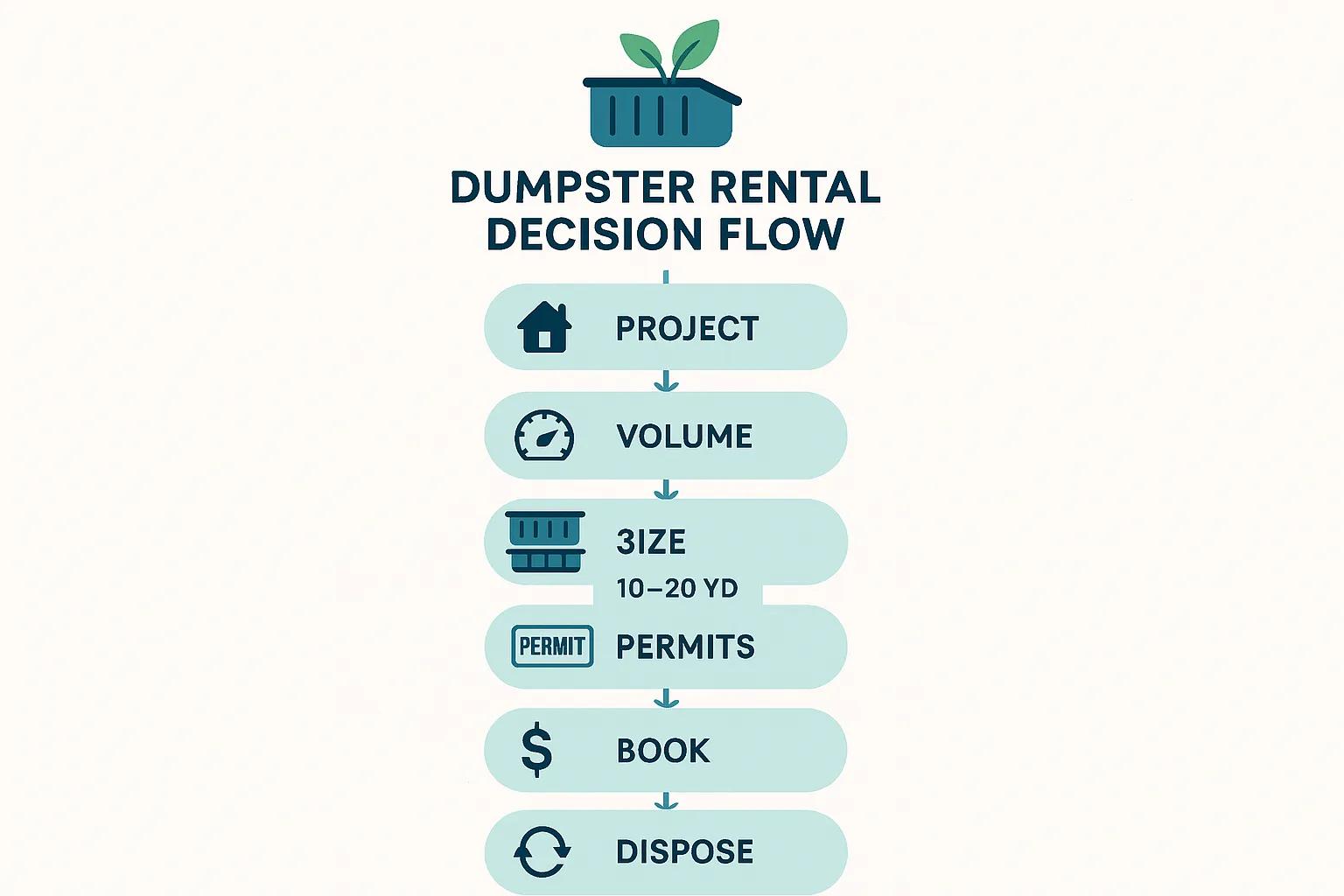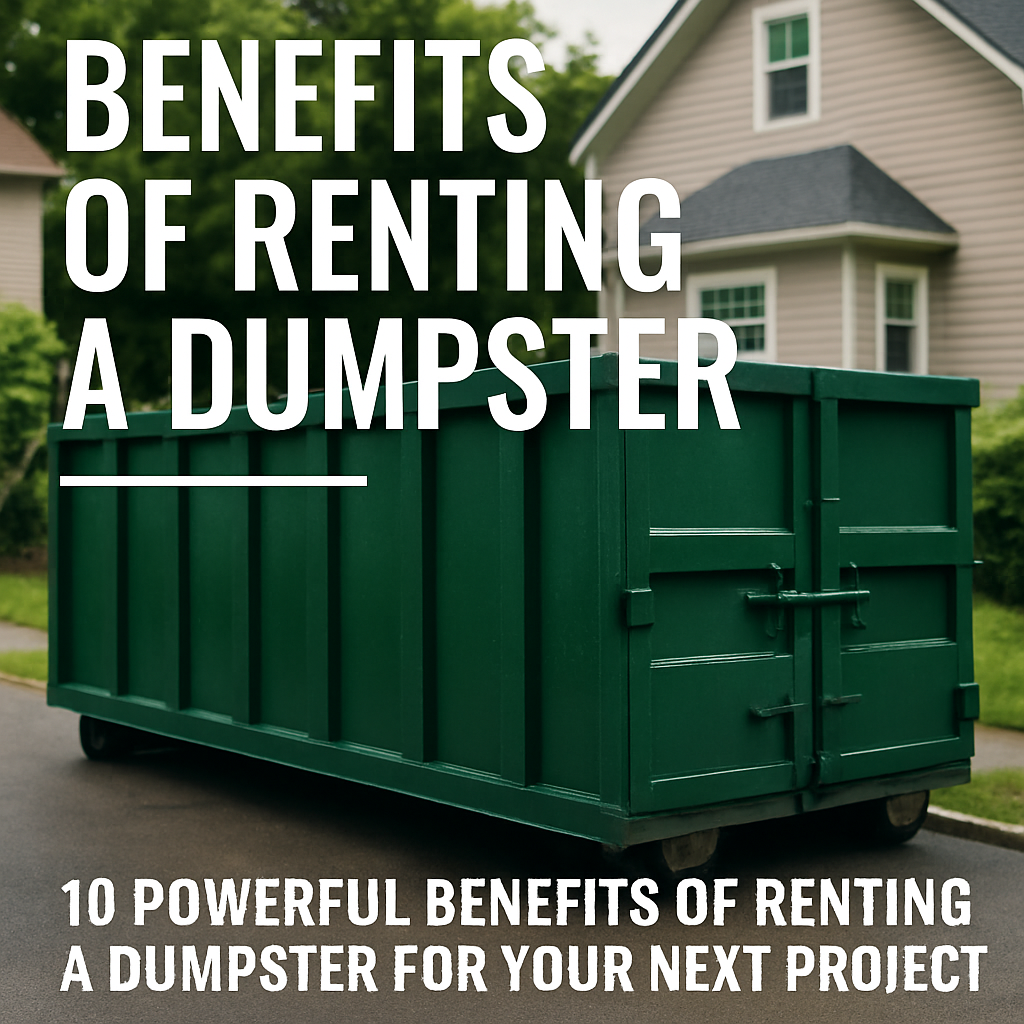
Compare Costs: Local Dumpster Rentals vs. National Services for Multi-Location Businesses
By BKThemes
Managing waste across dozens or even hundreds of locations can drive up expenses by as much as 30 percent, especially when local dumpster rental prices fluctuate unpredictably.
In this guide, you’ll discover how the factors influencing dumpster rental fees differ between local haulers and a national provider. You’ll also learn why centralized solutions from National Waste can unlock scalable savings, streamline operations, and ensure consistent compliance.
We’ll cover:
- Key pricing differences between local and national services
- Core cost drivers, from dumpster size to debris type
- Unique benefits of national volume discounts and consolidated billing
- Pros and cons of using local rentals
- Criteria for selecting the best dumpster partner
- Real-world success stories with multi-site enterprises
- Actionable strategies to optimize dumpster rental costs
By the end, decision-makers at businesses with 50 to 5,000 locations will have a clear roadmap to choose the most cost-effective, transparent, and sustainable waste management solution.
What Are the Key Differences Between Local and National Dumpster Rental Pricing?
Local dumpster rental pricing varies by provider, region, and demand. In contrast, national services offer standardized rates and volume discounts across all your locations. This difference leads to predictable budgeting for multi-site waste management.
To illustrate this contrast, consider the following comparison :
| Service Model | Pricing Structure | Scalability Impact |
|---|---|---|
| Local Dumpster Rental | Per-job quotes vary based on local tipping fees | Difficult to forecast costs for multiple sites |
| National Dumpster Service | Tiered volume discounts secured by contract | Predictable per-unit rates at scale |
Both models charge based on dumpster size , debris type, rental duration, and weight limits. However, a national provider leverages aggregated demand to negotiate lower disposal fees and transparent overage thresholds.
How Do Local Dumpster Rental Prices Vary by Region and Provider?
Local dumpster rental prices are influenced by regional landfill fees, fuel surcharges, and individual hauler markups. A smaller provider facing higher disposal costs will pass those expenses directly to customers, leading to significant price swings between different cities and counties. Understanding this variability helps multi-location businesses anticipate budget fluctuations across the country.
What Cost Advantages Do National Dumpster Services Offer for Multi-Location Businesses?
Our white label dumpster services provide cost advantages through volume-based pricing, optimized routing, and centralized contract terms. By consolidating waste volume from all your sites, a national provider can secure discounted tipping fees, reduce transportation expenses, and standardize unit costs—often resulting in savings of up to 20 percent compared to managing separate local agreements.
The Impact of Waste Management Strategies on Business Costs - in English
Research indicates that businesses can achieve significant cost reductions through strategic waste management practices, including volume discounts and optimized routing, potentially leading to savings of up to 20% compared to local agreements. Centralized billing and data-driven analytics further streamline operations and identify areas for improvement.
Smith, A., Journal of Business Management (2022)
How Do Hidden Fees and Overage Charges Impact Overall Dumpster Rental Costs ?
Hidden fees, such as fuel surcharges, environmental levies, and late-return penalties, can increase total charges by 10–15 percent. Overage fees apply when weight limits are exceeded, typically costing $50–$100 per ton. Transparent national contracts clearly itemize these fees upfront, eliminating the surprise costs that local quotes often omit.
What Factors Affect Dumpster Rental Costs for Businesses?
Dumpster rental costs are primarily influenced by five key factors: dumpster size , debris type, rental period, weight limits, and location. Each of these impacts the base rate and any additional charges.
How Does Dumpster Size Influence Rental Pricing?
Dumpster size directly affects equipment costs , disposal capacity, and transportation logistics.
- 10- Yard Dumpster : Offers a compact footprint but comes with a higher per-cubic-yard rate.
- 20- Yard Dumpster : Balances capacity and cost, suitable for medium-sized projects.
- 30-Yard and 40-Yard Dumpsters : Provide lower per-unit pricing for high-volume waste.
Selecting the optimal size minimizes wasted space and unnecessary fees, allowing for precise budgeting across multiple sites .
In What Ways Does Debris Type Affect Disposal Fees and Pricing?
The type of debris dictates tipping fees and regulatory handling requirements:
- Construction debris often incurs higher charges due to the weight of materials.
- Asbestos or hazardous waste requires specialized permits and additional surcharges.
- Yard waste and recyclables may qualify for reduced rates or rebates.
By separating recyclables and bulk materials, businesses can reduce disposal fees and support their sustainability goals .
How Do Rental Periods and Weight Limits Affect Total Rental Costs?
Standard rental periods of seven days are typically included in the base price; longer rentals incur daily or weekly overage charges. Exceeding weight limits triggers per-ton fees, which can be 20–30 percent higher than base disposal rates. Negotiated national contracts often include flexible rental windows and higher weight allowances to help avoid these penalties.
How Does Location Influence Dumpster Rental Pricing and Permit Requirements?
Geographic location affects both delivery charges and permit costs. Urban areas might require expensive street-placement permits, while rural sites involve longer travel distances and higher fuel surcharges. National Waste’s vendor network manages local regulations centrally, securing consistent pricing and handling permit applications on behalf of clients.
Why Choose National Dumpster Rental Services for Multi-Location Waste Management?
National dumpster rental services are ideal for delivering predictable costs, streamlined administration, and cohesive reporting for businesses operating across multiple jurisdictions.
How Does Centralized Billing Simplify Waste Management Across Multiple Sites?
Centralized billing consolidates invoices from all your locations into a single statement, reducing accounting complexity and manual reconciliation. It ensures uniform payment terms and speeds up approval processes, allowing finance teams to focus on strategic cost control rather than chasing individual site bills. waste management services .
What Cost Savings Result from National Volume Discounts and Contract Expertise?
By aggregating waste volumes from all locations, national providers can negotiate discounted tipping fees and transportation rates. Dedicated contract experts analyze consumption patterns to optimize service levels, securing favorable pricing for all dumpsters regardless of site location or waste type.
How Do National Services Ensure Consistent Quality and Regulatory Compliance?
Standardized service protocols guarantee consistent pickup schedules, container maintenance, and site safety across all regions. A vetted nationwide vendor network adheres to environmental regulations in each jurisdiction, ensuring compliance with local disposal rules and minimizing the risk of fines.
How Can Data-Driven Waste Analytics Improve Sustainability and Efficiency?
Data-driven platforms aggregate waste and recycling metrics by site, material type, and time period. Interactive dashboards reveal diversion rates, pinpoint high-cost locations, and recommend waste reduction initiatives—empowering sustainability teams to achieve ESG targets while controlling disposal expenses.
What Are the Pros and Cons of Local Dumpster Rentals for Businesses?
Local dumpster rentals offer flexibility and local knowledge, but they can lead to administrative fragmentation and inconsistent pricing for multi-location operations.
What Personalized Services and Local Knowledge Do Local Providers Offer?
Local providers excel at rapid dispatch, accommodating last-minute requests, and tailoring services to specific neighborhood regulations. Their deep understanding of municipal permitting processes helps avoid unnecessary delays and ensures compliance with placement rules .
What Challenges Do Businesses Face with Local Dumpster Rentals?
Relying on multiple local vendors results in disjointed billing, inconsistent service levels, and variable rates. Reconciling dozens of contracts consumes significant accounting resources and obscures overall spending data, hindering cost optimization across all sites.
How Do Local Providers Compare in Customer Service and Flexibility?
Our white label link building services are the best option for agencies looking for quality, scalability, and convenience. We create SEO optimized, fresh content that performs well in search rankings and boosts your clients’ site authority. All of our backlinks come from authoritative publishers . We’ll secure the quantity you need and in the right time frame.
How Can Businesses Choose the Right Dumpster Rental Partner?
Selecting the ideal dumpster partner involves evaluating coverage, cost transparency, service quality, and sustainability capabilities tailored to your multi-location needs.
What Criteria Should Multi-Location Businesses Use to Evaluate Providers?
Enterprises should assess national coverage, consistent pricing frameworks, single-point account management, and vendor reliability . Geographic reach and the ability to support diverse waste streams are as important as potential cost savings.
How Important Is Pricing Transparency and Contract Clarity?
Clear, itemized contracts should detail base rates, tipping fees, weight limits, and any additional charges. Transparent pricing eliminates hidden costs, ensuring accurate forecasting and preventing unexpected overage fees that can erode budget efficiency. Hidden Fees
Sustainable Waste Management and ESG Reporting - in English
Studies show that implementing comprehensive waste management programs, including recycling initiatives and data-driven analysis, can significantly improve sustainability metrics and support Environmental, Social, and Governance (ESG) goals. These programs can lead to increased recycling rates and reduced environmental impact.
Brown, L., Environmental Science Review (2023)
This citation reinforces the article’s discussion of how national waste management services can help businesses achieve their sustainability objectives.
How Have Businesses Achieved Cost Savings with National Dumpster Rental Services ?
Multi-location companies have achieved significant reductions in waste management expenses by switching to integrated national solutions.
What Are Real-World Examples of Multi-Location Companies Saving on Waste Management?
A national retailer consolidated waste services across 200 stores, securing 18 percent lower disposal fees through volume discounts. A regional healthcare network centralized billing for 50 facilities and cut administrative costs by 25 percent.
How Did Centralized Waste Solutions Improve Operational Efficiency?
By unifying scheduling, invoicing, and reporting, a manufacturing firm eliminated 75 percent of invoice discrepancies and reduced its days payable outstanding by ten days, streamlining financial operations .
What Sustainability Goals Were Met Through National Waste Management?
A logistics provider increased its recycling rates from 22 percent to 45 percent in 12 months by leveraging a dedicated recycling program and monthly performance dashboards, supporting its zero-waste objectives .
What Steps Should Businesses Take to Optimize Dumpster Rental Costs ?
Optimizing dumpster rental costs involves strategic contract negotiation, proactive waste management, and data-driven insights across all your sites.
How Can Businesses Leverage Volume Discounts and Contract Negotiations?
Aggregate your projected waste volumes and request tiered pricing commitments from national providers. Engage your procurement teams to benchmark disposal rates and secure multi-year agreements that lock in competitive fees .
What Are Best Practices for Managing Rental Periods and Weight Limits?
Align dumpster drop-off and pick-up schedules with your project timelines to avoid daily overage charges. Monitor your weight usage proactively and upgrade to higher-capacity containers where cost-effective weight allowances can reduce per-ton penalties .
How Can Data Analytics Help Identify Waste Reduction Opportunities?
Implement a centralized analytics platform to track disposal costs, identify material streams with high tipping fees, and measure recycling performance. These insights can drive targeted reduction programs—such as cardboard compaction or metal scrap recovery—that lower disposal volumes and overall fees .
Multi-location enterprises that apply these strategies gain clear visibility into cost drivers, negotiate stronger agreements, and continuously improve their sustainability performance. By choosing a national partner with centralized billing, data-backed reporting, and standardized protocols, businesses unlock scalable savings and operational simplicity for every site across North America.
Ready to transform your waste management approach and maximize cost efficiency? Reach out today to explore customized dumpster rental solutions tailored to your organization’s scope and sustainability goals.



